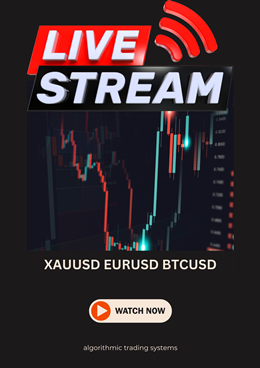Last week was very interesting for emerging markets.
Trump’s win sent shockwaves around the world and such movements usually hit those markets the hardest that don’t have much relation to the U.S. but are considered risky and therefore, investors quickly pull funds out of those markets.
The interesting thing is that these emerging market economies don’t fluctuate much more than developed economies. No matter what happens, life there goes on normally just as life goes on here in the U.S., even with a new president elect.
As economies are pretty stable, finding their equilibrium or their fundamental value gives an excellent edge when investing. What is perhaps even better than investing though, is trading on the euphoria and panic waves that surround emerging market fundamentals.
As always, charts will explain it best. The MSCI emerging market index, with 833 constituents, captures 85% of emerging markets capitalizations. The largest weights are attributed to China, followed by South Korea, Taiwan, India and Brazil.
Even with such extensive global diversification, the index is always very volatile. In the last 10 years, the S&P 500 has largely outperformed emerging markets and with much less volatility.
The SPY is close to all-time highs, while the EEM is still 33% below its all-time highs reached back in 2007.
The volatility is also much greater. The EEM fell 65% during the Great Recession while the S&P 500 fell almost 50%. The EEM regained territory much quicker than the S&P only to trade sideways since its peak in 2011, and is currently 25% down. It’s important to mention that at the lowest point since 2011, the EEM index was down 43% in January 2016.
The volatility is high even in the short term. Just last week, the EEM index lost 8% and historically, larger moves are not uncommon.
The logical conclusion from looking at the volatility in the EEM index fund would be that emerging markets economies have been having wild swings in their economic performances along with severe political, demographic, and economic issues, and plagued by recessions. The reality is pretty different.
Emerging markets economic growth is on average a few percentage points higher than for developed economies and the difference is expected to diverge even more in the future as the downturn in the commodity cycle returns to balance.
The worst thing investors can do when investing in emerging markets is to invest because everyone else is doing it. In order to prevent that, it’s important to look at valuations before investing. A quick look at valuations tells us that the iShares Emerging Markets ETF (EEM) has a PE ratio of 11.06 while the S&P 500 ETF (SPY) has a PE ratio of 20.10, which is almost double the PE ratio of EEM. This means that emerging markets offer twice the earnings yield of the S&P 500 with twice the economic growth.
You might be thinking that you should sell everything you have and invest it all in emerging markets, but given the volatility explained above, it isn’t such a smart thing to do. However, given the better fundamentals and future economic perspectives, what can be done is rebalancing.
We know that emerging markets have good economic prospects, good earnings, and from time to time get incredibly cheap. As we cannot know how cheap they’ll get, the best way to invest is to choose an equilibrium level, which is fine for your portfolio. As an example, let’s say the current earnings yield is 10% so we rebalance accordingly. If the yield increases, we buy more, if the yield decreases, we lower the exposure. The fact that emerging economies are expected to grow at a 5% growth rate in the future creates a large margin of safety that should be enough to counter the fear of buying more when things go south. Another look at figure 3 shows that emerging markets recover pretty quickly from their bear markets.
We will explain how rebalancing works in practice in another example. Let us assume you bought EEM with 2% of your portfolio on April 28, 2015 at a price of $43.9 with the intention to buy an additional 2% for every 10% decline and sell the 2% at every return to the previous level. Your future purchases would be around $39.82, $36.19, and $31.81. We won’t include the bottom as to not overstretch the example as it is easy to miss a bottom.
By September 2016, the index returned $37.99 and you would have sold the lower purchased 2% part of portfolio at a 10% higher price, and would still hold 6% of your portfolio. Eventually the index will return to its previous levels, and in the meantime by rebalancing, you have already had some extra returns from trading.
Conclusion
Rebalancing will give you the lowest possible risks given the fact that economic indicators are very positive and stable for the long term. Exposure to emerging markets gives you international diversification which is also very important for lowering risk and increasing returns.
source: investiv.co
- Emerging markets are volatile and considered risky, but the economics are great.
- We can’t fight the market without looking at the risks, but what we can do is rebalance our portfolios and do some dollar cost averaging.
- Such a strategy allows you to grasp the benefits of great economics and lower valuations while eliminating volatility risks.
Trump’s win sent shockwaves around the world and such movements usually hit those markets the hardest that don’t have much relation to the U.S. but are considered risky and therefore, investors quickly pull funds out of those markets.
The interesting thing is that these emerging market economies don’t fluctuate much more than developed economies. No matter what happens, life there goes on normally just as life goes on here in the U.S., even with a new president elect.
As economies are pretty stable, finding their equilibrium or their fundamental value gives an excellent edge when investing. What is perhaps even better than investing though, is trading on the euphoria and panic waves that surround emerging market fundamentals.
As always, charts will explain it best. The MSCI emerging market index, with 833 constituents, captures 85% of emerging markets capitalizations. The largest weights are attributed to China, followed by South Korea, Taiwan, India and Brazil.
[You must be registered and logged in to see this image.]
MSCI emerging market index country weights
MSCI emerging market index country weights
Even with such extensive global diversification, the index is always very volatile. In the last 10 years, the S&P 500 has largely outperformed emerging markets and with much less volatility.
[You must be registered and logged in to see this image.]
S&P 500 ETF (SPY) and Emerging markets ETF (EEM) in the last 10 years
S&P 500 ETF (SPY) and Emerging markets ETF (EEM) in the last 10 years
The SPY is close to all-time highs, while the EEM is still 33% below its all-time highs reached back in 2007.
The volatility is also much greater. The EEM fell 65% during the Great Recession while the S&P 500 fell almost 50%. The EEM regained territory much quicker than the S&P only to trade sideways since its peak in 2011, and is currently 25% down. It’s important to mention that at the lowest point since 2011, the EEM index was down 43% in January 2016.
The volatility is high even in the short term. Just last week, the EEM index lost 8% and historically, larger moves are not uncommon.
[You must be registered and logged in to see this image.]
EEM in the last 5 years.
EEM in the last 5 years.
The logical conclusion from looking at the volatility in the EEM index fund would be that emerging markets economies have been having wild swings in their economic performances along with severe political, demographic, and economic issues, and plagued by recessions. The reality is pretty different.
[You must be registered and logged in to see this image.]
Developed and emerging economic growth
Developed and emerging economic growth
Emerging markets economic growth is on average a few percentage points higher than for developed economies and the difference is expected to diverge even more in the future as the downturn in the commodity cycle returns to balance.
The worst thing investors can do when investing in emerging markets is to invest because everyone else is doing it. In order to prevent that, it’s important to look at valuations before investing. A quick look at valuations tells us that the iShares Emerging Markets ETF (EEM) has a PE ratio of 11.06 while the S&P 500 ETF (SPY) has a PE ratio of 20.10, which is almost double the PE ratio of EEM. This means that emerging markets offer twice the earnings yield of the S&P 500 with twice the economic growth.
You might be thinking that you should sell everything you have and invest it all in emerging markets, but given the volatility explained above, it isn’t such a smart thing to do. However, given the better fundamentals and future economic perspectives, what can be done is rebalancing.
We know that emerging markets have good economic prospects, good earnings, and from time to time get incredibly cheap. As we cannot know how cheap they’ll get, the best way to invest is to choose an equilibrium level, which is fine for your portfolio. As an example, let’s say the current earnings yield is 10% so we rebalance accordingly. If the yield increases, we buy more, if the yield decreases, we lower the exposure. The fact that emerging economies are expected to grow at a 5% growth rate in the future creates a large margin of safety that should be enough to counter the fear of buying more when things go south. Another look at figure 3 shows that emerging markets recover pretty quickly from their bear markets.
We will explain how rebalancing works in practice in another example. Let us assume you bought EEM with 2% of your portfolio on April 28, 2015 at a price of $43.9 with the intention to buy an additional 2% for every 10% decline and sell the 2% at every return to the previous level. Your future purchases would be around $39.82, $36.19, and $31.81. We won’t include the bottom as to not overstretch the example as it is easy to miss a bottom.
[You must be registered and logged in to see this image.]
Rebalancing and dollar cost averaging example
Rebalancing and dollar cost averaging example
By September 2016, the index returned $37.99 and you would have sold the lower purchased 2% part of portfolio at a 10% higher price, and would still hold 6% of your portfolio. Eventually the index will return to its previous levels, and in the meantime by rebalancing, you have already had some extra returns from trading.
Conclusion
Rebalancing will give you the lowest possible risks given the fact that economic indicators are very positive and stable for the long term. Exposure to emerging markets gives you international diversification which is also very important for lowering risk and increasing returns.
source: investiv.co

 Events
Events Blog
Blog




